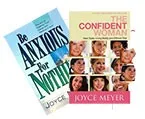Helen Duncan: Mediumship, Spiritualism, and the Danger of False Light
Helen Duncan: Mediumship, Spiritualism, and the Danger of False Light
Helen Duncan (1897–1956) is one of the most well-known spiritualist mediums of the 20th century. Born in Callander, Scotland, she became infamous for her claimed ability to contact the dead through séances, producing ectoplasm, and communicating with spirits. Her practices gained public and legal attention during World War II when she reportedly revealed secret naval information in a séance—a revelation that led to her prosecution under the Witchcraft Act of 1735. While hailed by many in the spiritualist movement as a gifted psychic, her practices stand in direct contradiction to the Word of God and the gospel of Jesus Christ.
What Did Helen Duncan Practice?
Helen Duncan was a practitioner of mediumship, a New Age and occult practice in which a person claims to mediate communication between the spirit world and the living. Through séances, she would produce “ectoplasm”—a supposed physical substance that spirits used to materialize. Witnesses at her gatherings claimed to see apparitions of the dead or receive personal messages from deceased loved ones.
Duncan’s spiritualism included practices such as automatic writing, spirit channeling, clairvoyance, and summoning entities through rituals. She became a prominent figure in British Spiritualism, a religious movement that gained traction in the 19th century and often borrows elements from paganism, mysticism, and Eastern religions, repackaged under a Western guise.
What Religion Did She Follow?
Helen Duncan was part of the Spiritualist Church, which is not Christian, despite its occasional use of biblical terminology. Spiritualism teaches that the soul continues to exist after death and that communication with the dead is not only possible but encouraged. This belief is rooted not in Scripture but in occult philosophy, which has its origins in paganism, Gnosticism, and Eastern mysticism.
Spiritualism promotes the idea that humanity can ascend to higher levels of consciousness through spiritual development—similar to New Age beliefs. Its “gods” or spiritual guides are not the God of Abraham, Isaac, and Jacob but rather a pantheon of “ascended masters,” spirit beings, and deceased souls, which the Bible identifies as familiar spirits or demons (Leviticus 19:31, Deuteronomy 18:10-12).
Why Does This Contradict God’s Word?
The Bible is very clear: communicating with the dead is an abomination to God. In Deuteronomy 18:10-12, God forbids mediums, necromancers, and those who consult familiar spirits. These are not innocent or harmless practices but spiritually dangerous activities that open doors to deception and demonic influence.
Duncan’s practices were not acts of godly discernment or spiritual gifting but rather counterfeit signs inspired by unclean spirits. The spiritual entities summoned in séances are not the souls of the dead, but lying spirits seeking to mislead people from the truth of Jesus Christ. In 2 Corinthians 11:14, Paul warns that “Satan himself masquerades as an angel of light.”
Furthermore, Hebrews 9:27 tells us, “It is appointed unto man once to die, but after this the judgment.” This verse debunks the idea that the dead wander the earth or communicate with the living. Any such communication is not from God but from demonic forces.
Famous, Yet Deceived
Helen Duncan became a celebrity in spiritualist circles, and her legal prosecution added to her notoriety. However, being famous does not mean being right with God. Jesus warned in Matthew 7:22-23 that many would claim spiritual experiences in His name but would be rejected because they did not do the will of the Father.
Duncan’s spiritualism led many into a false sense of hope—replacing the gospel of Christ with counterfeit comfort through spirit contact. This is why Christians must discern the source of supernatural experiences and test every spirit (1 John 4:1).
Conclusion
Helen Duncan may have been sincere in her beliefs, but sincerity does not necessarily equate to truth. The power she operated under was not from the Holy Spirit but from a realm the Bible commands us to avoid. Her legacy is a sobering reminder that not all supernatural experiences are from God, and that truth must be measured by the Word of God, not signs, wonders, or feelings.
By Teresa Morin, President of Touch of God Int'l Ministries of Healing and Deliverance.
See a list of occult practices.
If you've been involved in a new age, occult, or cult, it can invite demonic spirits to torment you. If you feel tormented, you may need deliverance.
Free Group Deliverance Online, two times a month. Learn more about the webinar and sign up quickly.


.jpg)
.jpg)







